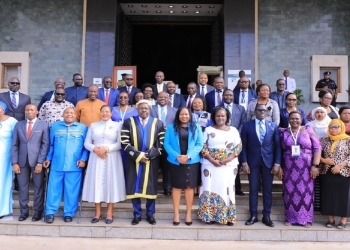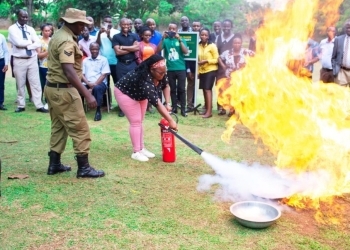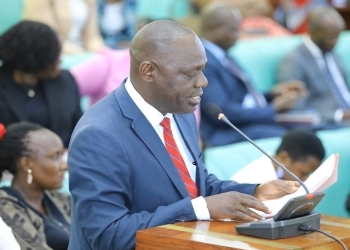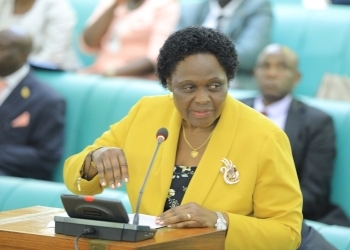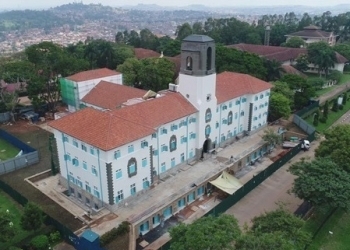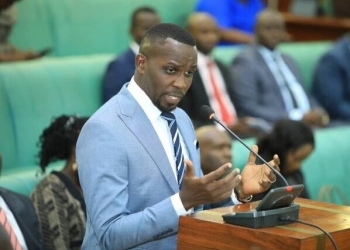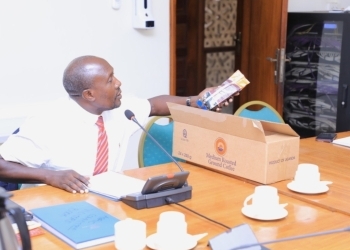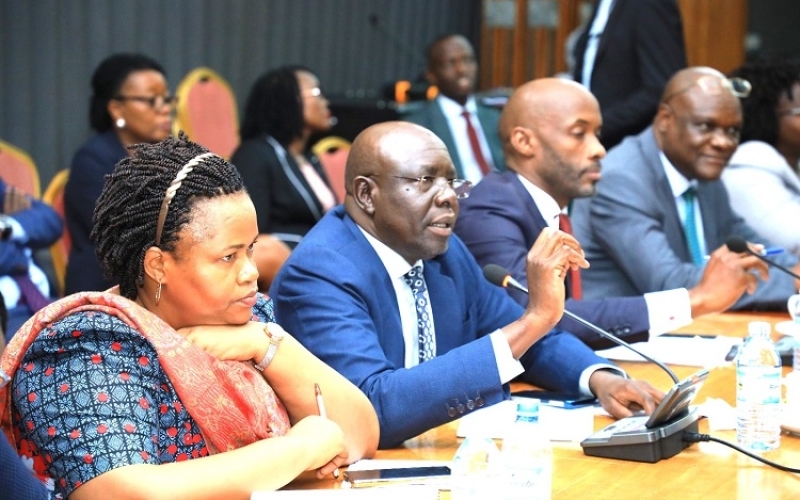
Lawmakers have questioned a proposal by the Ministry of Finance, Planning and Economic Development (MoFPED) to give Bujagali Hydro Power Project a one-year income tax exemption up to 30 June 2025.
The proposal is contained in the Income Tax (Amendment) Bill, 2024 that was presented before the finance committee by the Minister of State for Finance (General Duties), Hon. Henry Musasizi, on Tuesday, 09 April 2024.
Hon. Paul Omara (Indep., Otuke County) said that exempting Bujagali when the project still owes government Shs1.2 trillion is unacceptable.
“We investigated Bujaagali and what we found out was horrendous. Now another tax waiver, that one I am not supporting. I will go with a minority report on that,” he said.
Jinja District Woman Member of Parliament, Hon. Loy Katali, said that giving Bujagali a tax waiver defeats the purpose of mobilising more revenue.
"Do we need to exempt and yet we are looking for funds?" she asked.
Hon. Karim Masaba (Indep., Industrial Division, Mbale City) questioned why the minister introduced the exemption at committee stage and yet it was not reflected in the original Bill tabled during plenary.
The Director for Economic Affairs at the finance ministry, Moses Kaggwa, justified that the exemption is intended to reduce the cost of tariffs.
“The way a tariff is computed, it includes tax. High tariffs will affect businesses and we do not want to see businesses close. We agreed with Parliament to extend for a year until the Auditor General completes the audit. Once the audit ends, this will stop,” said Kaggwa.
Minister Musasizi also proposed expansion of excise duty tax to include adhesives, grout and lime in the 2024/2025 financial year.
He explained that the intention of the proposal under the Excise Duty (Amendment) Bill, 2024 is to create fairness in the tax regime.
"This is not a new tax because government already imposes Excise Duty of Shs500 per 50 kilogramme bag of cement and Uganda Revenue Authority has been collecting this tax," he said.
Musasizi further proposed excise duty beyond mobile money transactions to include other similar payment solutions and agent bank withdraws.
"This proposal [0.5 percent] is aimed at equalising the tax treatment of similar services.
He added, "It is also important to note that the current tax mainly applies to the poor, who largely use mobile money services to conduct transactions, which is not applicable to other payment and withdrawal services that are used by the poor, hence the need to expand the scope of services."
A proposal of an increase of Shs100 per litre in excise duty on fuel products was also presented before the Committee.
According to Musasizi, the proposal is in line with a government decision following an agreement with Parliament to increase excise duty on fuel products by Shs100 per litre every two financial years, except the COVID-19 period.
“Since the economy has recovered, we think it is time to make the adjustment. In addition, over the last few years, the Uganda shilling has depreciated, and the price of fuel has increased, yet tax has remained the same,” said the minister.
He said the increment will generate an additional revenue of Shs200 billion.
Committee chairperson, Hon. Amos Kankunda, however, said that the proposal will force citizens who rely on kerosene into darkness as they depend on the combustible hydrocarbon liquid for lighting.
“Locals will spend more to have lighting. Is this a reasonable tax increase?” he asked.
Hon. Dickson Kateshumbwa (NRM, Sheema Municipality) called on the minister to move away from imposing taxes but rather find measures leading to economic growth by proposing incentives to sectors that have the potential to generate more revenue.
"We need to push for economic growth, even if it is not related to revenue collection. Right now we are only looking at the short term gains and not long term," he said.




